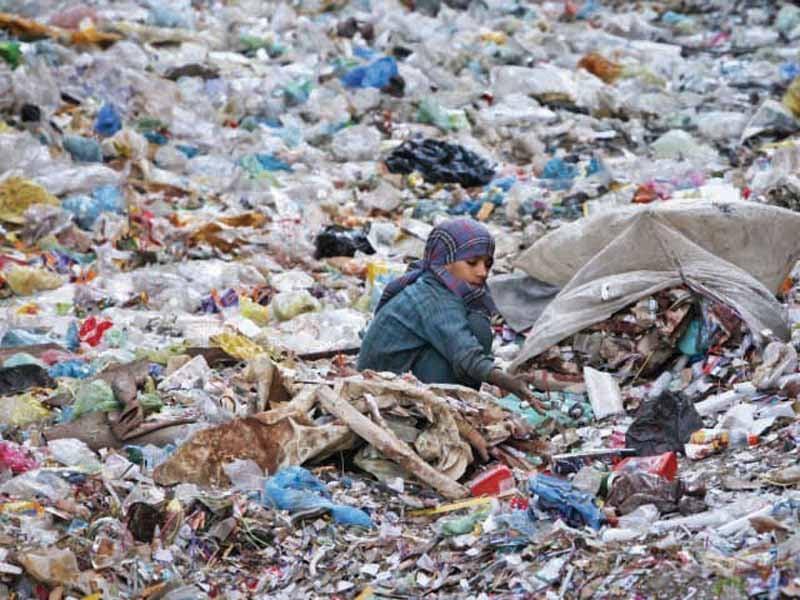Karachi:
World Environment Day is observed worldwide on June 5, with the theme of this year “Beat Plastic Pollution”, drawing attention to the growing plastic waste crisis. Environmental experts have warned that without immediate intervention, the consequences of uncontrolled pollution could be catastrophic for human health and ecosystem.
While addressing L’Express PK Press Club, Dr. Amir Alamper, deputy professor of environmental studies at the University of Karachi, said that plastic pollution has become one of the most serious environmental challenges in recent decades. “Plastic products are inexpensive and widely available, which encourages excessive use regardless of their harmful effects,” he added.
Dr. Alamgir highlighted the health risks posed by the use of plastic, especially during the summer. “Storage of drinking water in plastic bottles and refrigerate can release microplastics that enter the human body,” he said. “These microscopic particles can seriously damage the respiratory and digestive systems, blood vessels and other vital organs. Prolonged exposure can even cause fatal diseases such as cancer.”
He also warned of the generalized practice of waste combustion, in particular plastic waste, which releases toxic gases in the atmosphere. “These gases are absorbed in the lungs and blood circulation, affecting human health in order to understand-but we know that they pose serious risks,” he said.
Karachi, one of the most densely populated cities in the country, is at the center of the environmental crisis in Pakistan. The city generates approximately 14,712 tonnes of solid waste per day, of which only 50% is transported to discharge sites. The rest is thrown into open spaces, water bodies and streets, polluting both air and water sources.
According to Dr. Alamgir, 60% of Karachi’s solid waste is made up of plastic, a large part of which is found in the Oman Sea, endangering marine life. “If the current trend continues, Karachi could face irreversible ecological damage over the next 15 years,” he warned.




